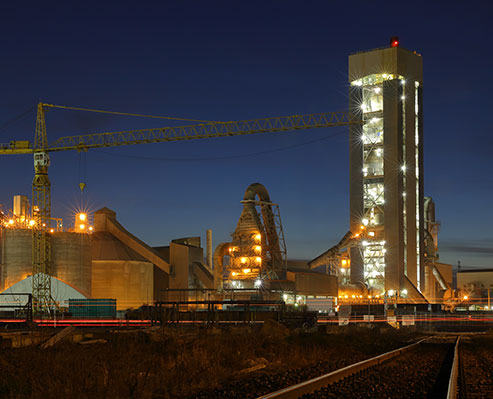
This whitepaper is available to download in English and Vietnamese.
Executive Summary
Cement production is a remarkably complex process with ever-changing inputs (fuels, raw materials), conditions (state of equipment, shift changes), and competing priorities (throughput, control limits). Great cement plant operators take many years to learn how to get the best out of their plants through controlling interrelated systems and conflicting requirements to deliver product quality, whilst maximising throughput.
Advances in Artificial intelligence (AI) have had a transformative impact on many industries, including finance, healthcare, automotive manufacturing and technology, bringing new capabilities and opportunities for innovation. However, adoption in the cement industry has been slower due to a lack of tools specifically tailored to the needs of plant operators.
While generic modelling tools have been available to the industry for some time, AI technology can now develop a ‘digital twin’ of an individual plant by analysing the sensor data gathered on a minute-by-minute basis by Distributed Control Systems. This creates a high-resolution digital model that captures the properties of a given kiln (the thermodynamics, and the physical processes of clinker production) and delivers an accurate representation of the real world performance in that specific plant. This digital twin provides a platform for AI ‘agents’ to learn complex process control in a sophisticated simulation. The outputs are insights on how to maximise the efficiency of the plant that enable operators to adapt to the continually changing plant conditions.
The branch of AI that powers these insights is called ‘deep reinforcement learning’. This is an area of AI that has seen considerable breakthroughs in recent years, demonstrating the capability to exceed human performance in highly complex strategic planning tasks.
Applying digital twins and reinforcement learning to fuel use in cement production has enabled us to train AI agents to explore and find the optimal parameters of the production system concerning one or more goals (e.g., minimal fuel cost, maximal throughput), which are then applied to the real plant.
Delta Zero, Carbon Re’s software platform, builds ‘digital twins’ to support operators in managing the complexities of cement production by providing them with clear, actionable recommendations for process set-points. This leads to significantly reduced energy consumption and CO2 emissions.

